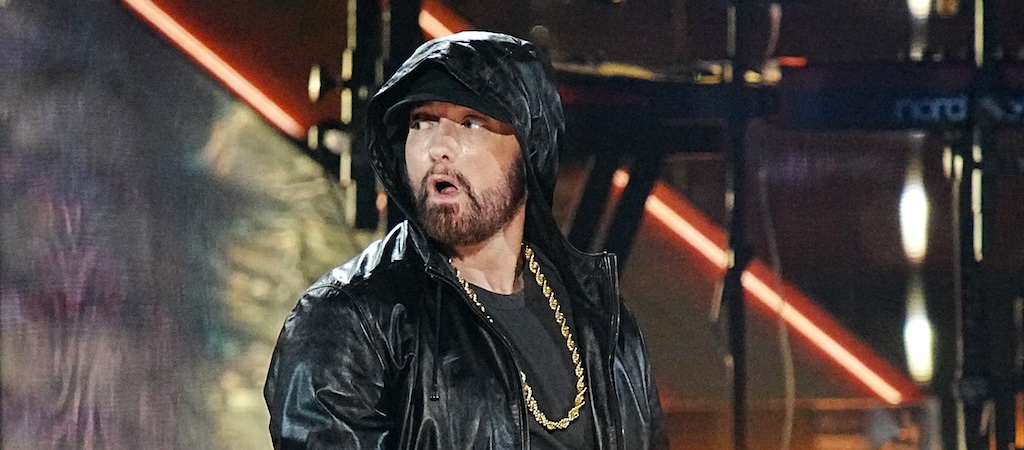Despite the key role he has played in bringing the sounds of Afrobeats to the U.S. and U.K. pop charts, the Nigerian producer says he has never been able to make a living out of his music from domestic revenue. He is determined to change that for the next generation of Nigerian musicians
For over a decade, his beats have rung out across the radios and clubs of Lagos, and now the world. At 30, Sarz has been a key collaborator for Nigerian artists like Wizkid and WurlD, who have helped bring the sound of Afrobeats to the U.S. and U.K. pop charts. (He’s one of the half-dozen producers credited on Drake’s “One Dance.”) But, he says, he has never been able to make a living out of his music from domestic revenue, and he is determined to change that for the next generation of Nigerian musicians.
In his studio in the Lekki district, home to the new bourgeoisie of Lagos, Sarz radiates calm and confidence, dressed casually in a Calvin Klein T-shirt, red jogging pants and Nikes, as he talks about the challenges of making music on the African continent. “Here, most of the producers are only as good as their last song,” he says. And production itself doesn’t provide enough of a revenue stream, so even as he began making hits for Burna Boy, Wizkid and other top Afrobeats artists in Nigeria, Sarz found that he had to broaden his horizons: “I started making my own music, also DJ’ing. There’s always an opportunity to rise above a problem.”
With that in mind, in 2015 he launched the Sarz Academy to teach young producers the basics of navigating the music business in Africa. “I wanted to help other music producers achieve in a shorter time the things that took me 10 years to achieve,” he says. Each year he sifts through demos from thousands of applicants, selects a dozen, then rents a house in Lagos where the students can live for a month during the summer. They have the chance to work with him on beats and tracks, but also talk with Nigerian artists, managers and lawyers about streaming revenue, online platforms, intellectual property, collaborating on projects, brand development and marketing. Around 60 students have graduated from the academy, some — like Kel-P, Legendury Beatz and Jay Pizzle — becoming well known in Nigeria.
Nigeria is Africa’s most populous country, with over 200 million people, but the nation has almost no concert halls. The CD market never blossomed due to piracy, and the absence of a middle class makes subscription streaming a marginal business at best. (Spotify is still not available in Nigeria, though Apple Music is, along with the homegrown app UduX and the Chinese-backed service Boomplay Music, all vying for the 500 million African citizens projected to own smartphones this year.)
In the United States and Europe, says Sarz, “you can score a huge song and you know that you will make money. It is not like that in Nigeria. There is no avenue for the catalog to generate funds. It is the biggest challenge that is facing producers in Nigeria.”
When Sarz began his career 14 years ago, artists didn’t value the contributions of producers. “I wasn’t paid for so many songs I produced here in Nigeria,” he says, which seems like an understatement — he sold his first beats for 3,000 nairas (about $8). Born Osabuohien Osaretin, he dubbed himself “Sarz” as a play on the 2002 SARS pandemic — it’s a reference to how music “spreads like a virus” and picks up a syllable from his given name. His breakthrough came in 2009, when he produced “Kondo” for Nigerian rapper Da Grin, and he has gone on to work with WurlD, Burna Boy, Reminisce and Wizkid, among others.
P Prime — a graduate of the Sarz Academy — hopes to follow in his footsteps. When he came to the academy, he was 16 and hadn’t played music anywhere except his local church. Two years later, he has produced tracks such as “Like I Do,” for the debut album from one of Nigeria’s rising stars, Fireboy DML; “Gelato” for Cuppy; and “Unripe Pawpaw” for Zlatan. Most of P Prime’s current projects emerged from connections he made through the academy. He dreams of becoming a globally recognized producer. “I can’t dream small,” he says. “I have to dream big. I plan to break out of Africa. I am doing it for global Afro music.”
Sarz hopes to open branches of the academy elsewhere in Africa in the future, and wants to start a partnership with a Nigerian university to give more credibility to pop music as a career path in Nigeria. “When kids are passionate about music, arts, fashion, they don’t get support from their parents because they don’t think it could be a lucrative career,” he says. But more than anything else, he wants to see real infrastructure take shape within the nation’s music industry. “Until I can produce a song of my own and make enough money off that song in my country, then I haven’t fulfilled why I started the academy,” he says. “That’s the big deal.”
A version of this article originally appeared in the May 23, 2020 issue of Billboard.



